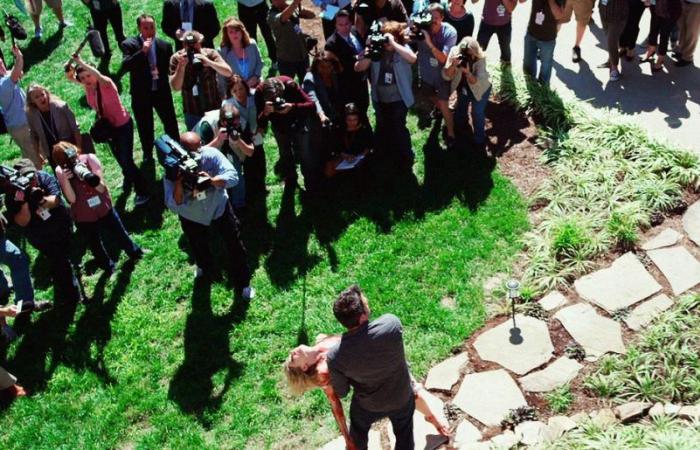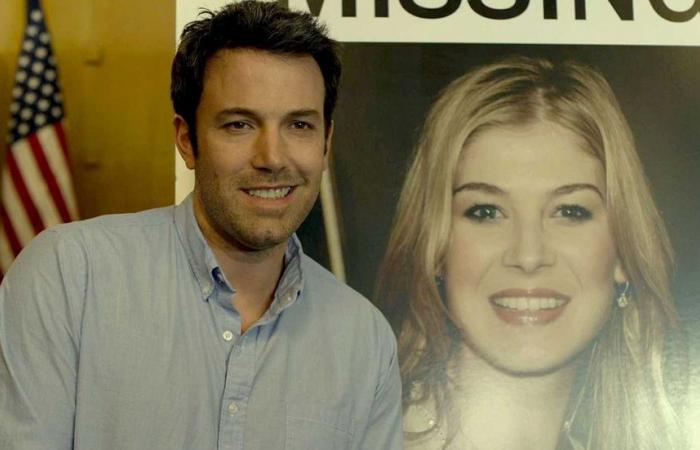An actor has many reasons for choosing or not to work on a film. The first, of course, is money. After all, it is a job and they get paid for it. The checkbook has convinced many stars to appear, for example, in the MCU in small and unimportant roles. There is also, obviously, the script, the first of the artistic reasons. Before the film is made, the only thing the actor usually sees is the script, focusing on the whole story but especially on the character. There is also, of course, the rest of the cast, nothing like a star attached to the project to convince others to join. In fact, stellar casts are usually domino effects.
However, it is often the directors, and their resume as filmmakers, that can make all these preferences go unnoticed. Beyond some purely box office stars, most actors want to work with the big directors. A role for a big director also usually exposes you to being hired by others and others, and thus entering the quality film circuit, and going on to win festivals, awards and prestige. Many actors would agree to work in a Tarantino or Scorsese film in the smallest and stupidest role in the world, just to have it on their resume. In addition, in many a relationship of trust is created in which actor and director know that they will work together again before the film takes shape. The actor puts blind faith in an empty project and the director creates the character and the story in relation to what he wants to get out of the actor.
However, although no star will say it publicly, there are great directors who are more difficult to work with than others. Throughout the history of Hollywood there have been three great authors who were notoriously frustrating and who made every last drop of an actor’s salary count, repeating takes over and over again. Charles Chaplin could shoot the same shot for months and months, although it was difficult to blame him because he was, at the same time, the most demanding actor. The same is said of Kubrick, a perfectionist who would make Tom Cruise shoot the same scene of a simple greeting for two months because it did not satisfy him or it pushed the actors to the limits of their mental health.
David Fincher has the same fame, and we owe him many of the best dark and criminal stories in Hollywood in the last two decades. We could talk about ‘Seven’, ‘Zodiac’, or even the series ‘Mindhunter’. Fincher always exudes quality, and it shows in every shot that he pushes his actors to the limit. However, that demand, that strange perfection is seen more and better than ever in ‘Gone Girl’, a magnificent adaptation by Gillian Flynn of her own novel about a woman who disappears, leaving her husband as a suspect, which triggers a wave of incidents. Ben Affleck, always somewhat limited in his performances, turns his faults around by embodying this clumsy, desperate man. But if there is one thing we remember about this circular film, closed like a bow, it is for Rosamund Pike’s gaze and an interpretation that could be next to the word “complexity” in dictionaries.
‘Lost’ came to us no less than 10 years ago, and on July 1 it will leave Netflix. That’s why we can’t think of a better opportunity to see it again or discover it for the first time.

Rafael is an expert in film, series and video games. He is into classic and auteur cinema, although he doesn’t miss Marvel or the current Netflix hit due to professional deformation. He also has a geeky side, as proven by his specialization in anime, k-pop and everything related to Asian culture.
By generation, sometimes he writes about current musical hits, from Bizarrap to Blackpink. He even has his erotic side, but unfortunately limited to selecting the best erotic series and films. But he doesn’t limit himself there, as he also likes to write about gastronomy, travel, humor and memes.
After 5 years writing for Fotogramas and Esquire, the truth is that he has already done a bit of everything, from interviews with international stars to mobile phone presentations or tastings of oil, insects and, yes, with luck, wine.
She studied Audiovisual Communication at the University of Murcia. She then continued at the Carlos III University of Madrid with a Master’s in Media Research. In addition to beginning a PhD on sexual representation in auteur cinema (which she never finished), she also studied a Master’s in film criticism, both at the ECAM and at the Escuela de Escritores. Before that, she gained experience writing on the blog Cinealacarbonara, continued in media such as Amanecemetropolis, Culturamas or Revista Magnolia, and dedicated all her efforts to Revista Mutaciones since its foundation.
He joined Hearst in 2018 and managed to make a name for himself in the editorial offices of Fotogramas and Esquire, where he continues to write about everything he likes and is asked to do (which often coincides). His good or bad taste (depending on how you look at it) also led him to get into the world of gastronomy and video games. In short, he likes to entertain himself.




